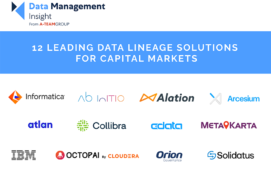As well as working towards a centralised EDM solution, UBS Global Asset Management is also seeking synergies between its reference data management process and its net asset value (NAV) calculation function, according to Markus Kohn, head of data management for the EMEA region at the buy side firm. Speaking at last week’s TSAM conference, he explained that the firm has already taken steps to offshore the bulk of its reference data cleansing capabilities and it is now looking to see where it can improve its approach to the space overall.
Kohn’s team is examining the potential tie ups between the NAV calculation function as a more client facing function and the behind the scenes work that goes into data management. The hope is that by tying these two together, the data management team will have more leverage and buy in from the business and cost saving opportunities and efficiency gains will be realised.
“Now that we have offshored a lot of the day to day data work, we can review the data management function on a task by task, or process by process basis in order to identify areas that can be improved upon,” he explained.
Kohn also noted that critical to this process is transparency around who owns what in terms of reference data. “Senior executives need to buy in to the data governance structure in order to make significant progress,” he added. His suggestion to the delegation about the manner in which this buy in could be achieved was to make clear the reputational and financial costs of poor data quality. “Often it is about being able to quantify these costs, which is a challenge when it comes to measuring reputational damage,” he said.
The selling point is therefore around trust in data quality, both from an internal and external perspective; a notion that many data managers have jumped on in the post-crisis environment. The highlighting of regulatory fines such as those meted out to firms found to be falling short of compliance with regulations such as MiFID due to poor quality reference data is a much more common practice than before.
Earlier in the day, Kohn’s colleagues Hans Lux, head of data architecture, and Jagtar Bachra, lead data analyst, also elaborated on the benefits of a centralised approach to data management versus a federated approach. They promoted the development of a common repository for reference data in which cross references and mapping between formats is facilitated, rather than a solution that has too many “moving parts”.
The comments by Lux, Bachra and Kohn indicate that there remains a wide range of approaches to the reference data function. For example, some opt for federated approaches, whereas others prefer the more traditional EDM approach. Others tie functions such as NAV calculations to data management, whereas some firms decide to keep these functions entirely separate.
Subscribe to our newsletter




